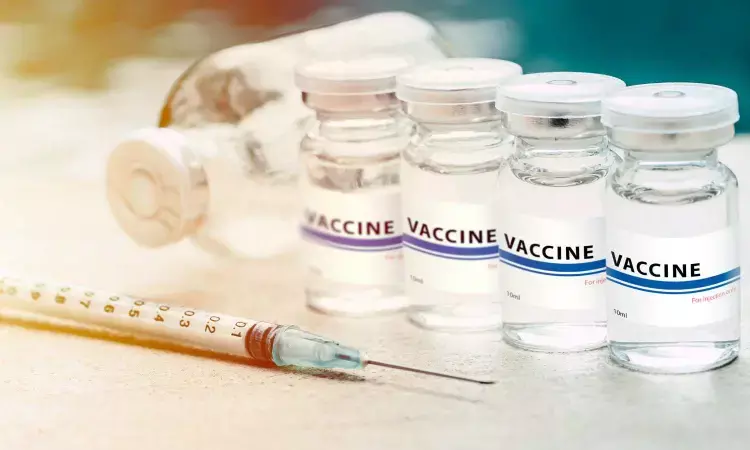- Home
- Medical news & Guidelines
- Anesthesiology
- Cardiology and CTVS
- Critical Care
- Dentistry
- Dermatology
- Diabetes and Endocrinology
- ENT
- Gastroenterology
- Medicine
- Nephrology
- Neurology
- Obstretics-Gynaecology
- Oncology
- Ophthalmology
- Orthopaedics
- Pediatrics-Neonatology
- Psychiatry
- Pulmonology
- Radiology
- Surgery
- Urology
- Laboratory Medicine
- Diet
- Nursing
- Paramedical
- Physiotherapy
- Health news
- Fact Check
- Bone Health Fact Check
- Brain Health Fact Check
- Cancer Related Fact Check
- Child Care Fact Check
- Dental and oral health fact check
- Diabetes and metabolic health fact check
- Diet and Nutrition Fact Check
- Eye and ENT Care Fact Check
- Fitness fact check
- Gut health fact check
- Heart health fact check
- Kidney health fact check
- Medical education fact check
- Men's health fact check
- Respiratory fact check
- Skin and hair care fact check
- Vaccine and Immunization fact check
- Women's health fact check
- AYUSH
- State News
- Andaman and Nicobar Islands
- Andhra Pradesh
- Arunachal Pradesh
- Assam
- Bihar
- Chandigarh
- Chattisgarh
- Dadra and Nagar Haveli
- Daman and Diu
- Delhi
- Goa
- Gujarat
- Haryana
- Himachal Pradesh
- Jammu & Kashmir
- Jharkhand
- Karnataka
- Kerala
- Ladakh
- Lakshadweep
- Madhya Pradesh
- Maharashtra
- Manipur
- Meghalaya
- Mizoram
- Nagaland
- Odisha
- Puducherry
- Punjab
- Rajasthan
- Sikkim
- Tamil Nadu
- Telangana
- Tripura
- Uttar Pradesh
- Uttrakhand
- West Bengal
- Medical Education
- Industry
Prenatal Vaccination and Infant Monoclonal Antibody Combo Effective RSV Prevention Strategy: JAMA

USA: Researchers have found in a new study that a respiratory syncytial virus (RSV) prevention strategy combining prenatal vaccination and infant monoclonal antibody administration had high adoption rates and reassuring perinatal outcomes. The findings were published online in JAMA Network Open on February 19, 2025.
With the approval of two interventions in 2023—the bivalent prenatal RSV prefusion F protein-based (RSVpreF) vaccine, and the infant monoclonal antibody nirsevimab—understanding their adoption and clinical impact is crucial for public health planning. Evaluating the uptake of the RSVpreF vaccine in pregnant individuals and nirsevimab in infants will provide essential insights into their effectiveness in preventing severe respiratory syncytial virus infections and guide future immunization strategies. Considering this, Christine A. Blauvelt, University of California, San Francisco, and colleagues aimed to analyze the adoption of the prenatal RSVpreF vaccine and infant nirsevimab.
For this purpose, the researchers conducted a retrospective cohort study at a single academic center, examining 647 pregnant individuals eligible for RSVpreF vaccination between 32 and 36 weeks gestation from October 15, 2023, to January 31, 2024, as well as infants eligible for nirsevimab who had not been exposed to prenatal RSVpreF vaccination at least 14 days before birth. By analyzing pregnancies and births during the 2023-2024 RSV season, the study assessed RSVpreF vaccination rates among eligible pregnant individuals and nirsevimab administration before hospital discharge in eligible infants.
Key Findings:
- Among 647 eligible pregnant individuals (mean age 34.6 years), 414 (64.0%) received the RSVpreF vaccine.
- Higher RSVpreF uptake was associated with older maternal age (AOR, 1.09), nulliparity (AOR, 1.84), private insurance (AOR, 2.19), and non-Hispanic ethnicity (AOR, 2.36).
- Receiving any COVID-19 vaccine (AOR, 7.12), the 2023-2024 formula COVID-19 booster (AOR, 5.62), influenza vaccine (AOR, 8.14), or tetanus-diphtheria-pertussis vaccine (AOR, 6.86) was linked to higher RSVpreF uptake.
- Lower RSVpreF uptake was observed among individuals with non-English language preference (AOR, 0.24), Black race (AOR, 0.30), other or unknown race (AOR, 0.48), and multiple gestations (AOR, 0.27).
- Nirsevimab was administered to 183 of 261 eligible infants (70.1%) before hospital discharge.
- Among neonates whose mothers did not receive RSVpreF or standard prenatal vaccines, 40.4% received nirsevimab, while 34.0% of those whose mothers declined infant hepatitis B vaccination received nirsevimab.
- RSV protection exceeded 80% during all study months except October 2023, when prenatal RSV vaccination and nirsevimab were first introduced.
- Preterm delivery occurred in 8.5% of RSVpreF-vaccinated individuals and 18.5% of unvaccinated individuals.
- A nested case-control analysis found no significant link between RSVpreF vaccination and preterm birth (AOR, 1.03).
The researchers found a high uptake of the RSVpreF vaccine and infant nirsevimab, even among those who did not receive routine prenatal or infant vaccines. Their findings showed no significant association between RSVpreF vaccination and preterm birth, reinforcing the safety of this approach.
"The study highlights that an RSV prevention strategy combining prenatal vaccination and infant monoclonal antibody administration achieved substantial adoption and demonstrated reassuring perinatal outcomes, supporting its effectiveness in protecting infants against severe RSV infection," they concluded.
Reference:
Blauvelt CA, Zeme M, Natarajan A, et al. Respiratory Syncytial Virus Vaccine and Nirsevimab Uptake Among Pregnant People and Their Neonates. JAMA Netw Open. 2025;8(2):e2460735. doi:10.1001/jamanetworkopen.2024.60735
Dr Kamal Kant Kohli-MBBS, DTCD- a chest specialist with more than 30 years of practice and a flair for writing clinical articles, Dr Kamal Kant Kohli joined Medical Dialogues as a Chief Editor of Medical News. Besides writing articles, as an editor, he proofreads and verifies all the medical content published on Medical Dialogues including those coming from journals, studies,medical conferences,guidelines etc. Email: drkohli@medicaldialogues.in. Contact no. 011-43720751


